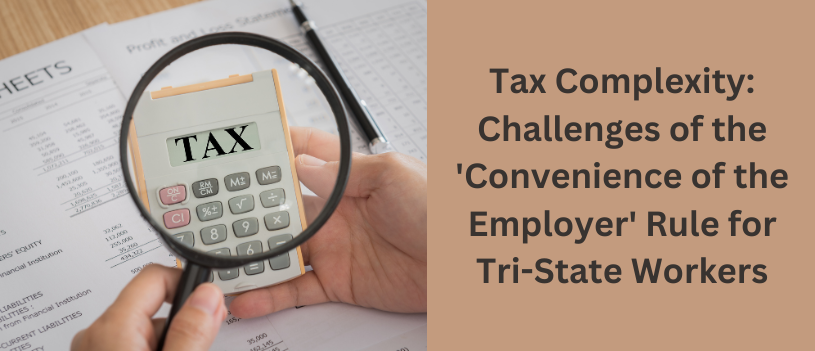The “convenience of the employer” rule for taxing income in a specific state is causing trouble for people who live in one state but work in another. Most states tax income based on where the work is done. For example, if you work in Colorado, you pay Colorado income tax. However, some states, like New York, follow the “convenience of the employer” rule, where they tax income based on where the employer is located, not where the work is physically done.
This rule becomes a problem, especially in a remote work environment. New York, for example, applies this rule, and it has led to issues for people living in neighboring states. Connecticut residents working remotely for a New York-based employer were required to pay income taxes to both Connecticut and New York, with no offsetting credit from either state.
In response, Connecticut amended its income-sourcing statute in 2019. The change made Connecticut residents working remotely for a New York-based employer eligible for a credit on their Connecticut income tax return for taxes paid to New York. However, this didn’t fully resolve the problem for New York residents working remotely in Connecticut periodically for a New York employer. Connecticut’s rules are not as comprehensive as they may seem, and some issues persist.
One continuing issue is that income earned in Connecticut by non-residents who physically work in the state for more than 15 days in a year is taxed without exception. Connecticut’s tax law seems to treat identical work differently based on the taxpayer’s residency, discouraging interstate commerce and creating inconsistencies.
The situation raises concerns about potential constitutional issues, as it may violate the prohibition on laws that restrict interstate commerce.
The author suggests that Connecticut should update its rules to treat income consistently for residents of states following the “convenience of the employer” rule, ensuring fair and uniform taxation. This might involve capping the tax owed under the convenience of the employer rule to the amount eligible for a resident credit in the taxpayer’s home state. Clarity in the statutory language or regulatory guidance is also recommended to avoid confusion.
If you are a worker affected by this law, be sure to speak to your CPA to plan for the taxes that you may owe to be prepared for double taxation until this issue is resolved.
An Inconvenient Truth about Remote Work – The CPA Journal
